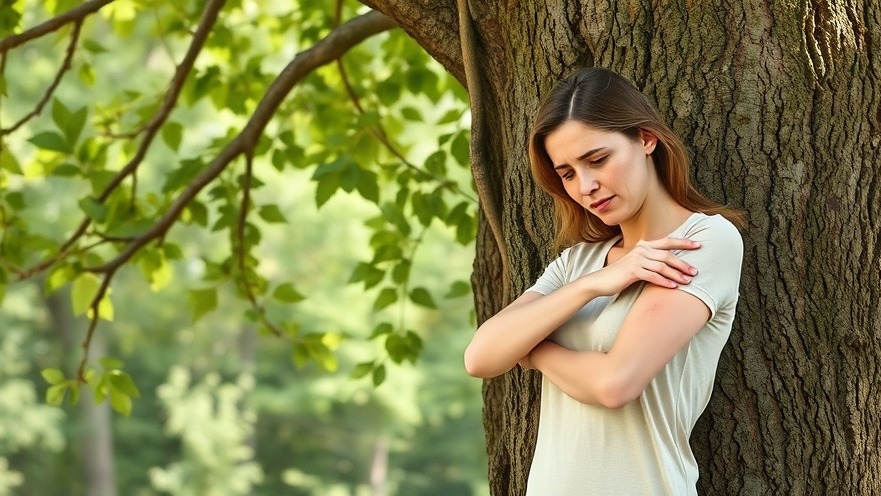
Understanding Poison Ivy: Nature's Sneaky Adversary
Poison ivy, a plant that many people dread, thrives in urban areas and natural settings alike. It can be deceptively beautiful, with its leaves boasting vibrant green colors that can easily mask its troubling effects. The culprit behind the irritation we experience is urushiol, an oily resin found in the leaves, stems, and roots of the plant. When touched or brushed against, this resin can cause serious skin reactions, including rashes, itching, and discomfort. Understanding how your body reacts to urushiol can empower you to make better choices when you're out in nature.
Immediate Actions You Can Take
If you find yourself in contact with poison ivy, prompt action can minimize discomfort. One effective first step is to wash the affected area with soap and water as soon as possible—preferably within 30 minutes of exposure. This helps to remove the urushiol before it binds to your skin. Next, avoid scratching the rash, which can lead to infection and further irritation. Instead, consider natural remedies available in your home to soothe the symptoms.
Home Remedies for Quick Relief
Here are several tried-and-true home remedies that can aid in alleviating the discomfort caused by poison ivy:
1. Menthol Cream or Lotion: Known for its cooling effect, menthol can provide instant relief from itching.
2. Aloe Vera Gel: With its natural anti-inflammatory properties, aloe vera is a top contender for soothing inflamed skin.
3. Witch Hazel: This astringent can help dry out rashes and reduce inflammation, offering a calming effect.
4. Oatmeal Baths: An oatmeal soak can provide immense relief, as oatmeal is renowned for treating skin irritations.
5. Baking Soda Paste: Mixing baking soda with water to form a paste can help dry out the rash and minimize itching.
6. Cold Compress: Applying a cold, damp cloth to the rash will soothe the skin and minimize swelling.
7. Apple Cider Vinegar: Despite its strong scent, this vinegar’s acidic nature can help dry out the rash.
These remedies rely on ingredients that many people already have in their homes, making relief readily accessible.
Know When to Seek Medical Attention
While home remedies can offer comfort, it's crucial to recognize when a rash requires professional medical advice. If your rash starts to ooze, covers a large area, or if you experience severe swelling and pain, it's time to consult a physician. Allergic reactions can vary in intensity, and knowing when to seek help can prevent complications.
Conclusion: Nurturing Our Urban Community
Poison ivy serves as a reminder of the natural world that exists even in bustling urban environments. By understanding the effects of this plant and leveraging quick home remedies, we can ensure our adventures outdoors remain enjoyable. Let’s embrace the spirit of community by sharing these tips and supporting one another in our quest for well-being in nature.
 Add Row
Add Row  Add
Add 




 Add Row
Add Row  Add
Add 

Write A Comment